Accounting System and Software in Nepal
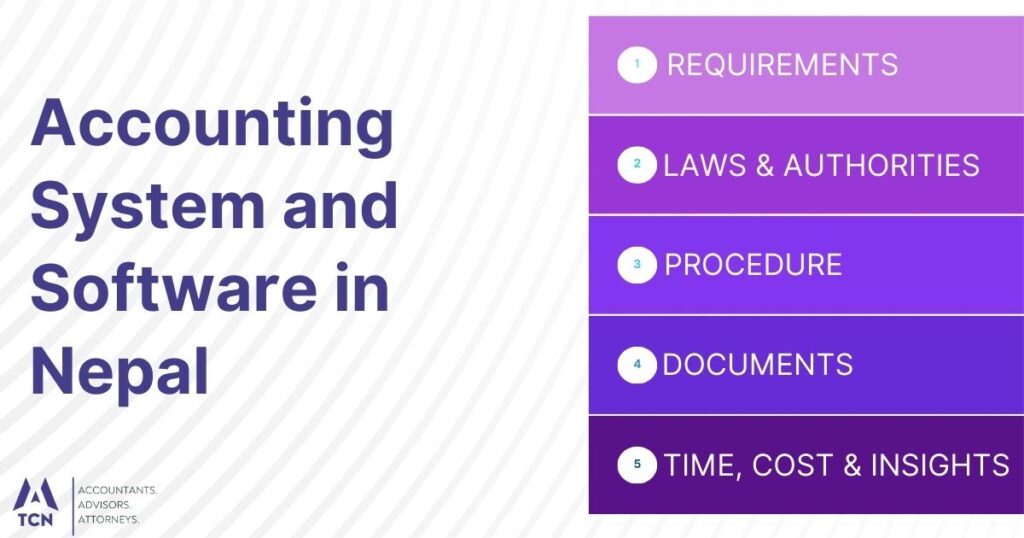
An accounting system is a structured method of recording, organizing, and reporting financial transactions within an organization. It encompasses the processes, procedures, and tools used to track income, expenses, assets, liabilities, and equity. In Nepal, businesses utilize accounting systems to maintain accurate financial records, comply with regulatory requirements, and make informed business decisions. Accounting systems […]
Taxation of Mergers and Acquisitions in Nepal
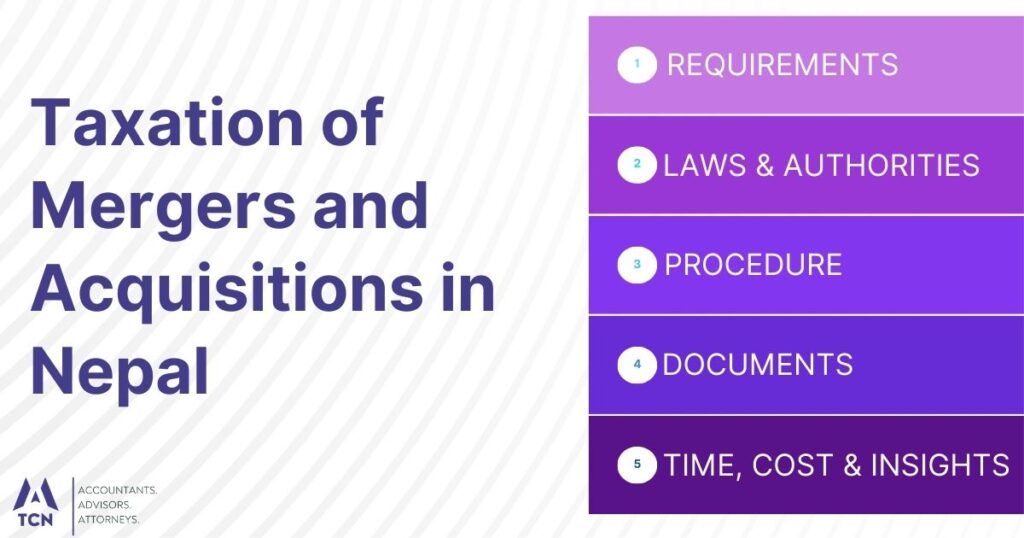
In Nepal, the taxation of mergers and acquisitions (M&A) is governed by the Income Tax Act, 2058 (2002) and its subsequent amendments. The tax treatment of M&A transactions depends on the structure of the deal and the type of entities involved. For mergers, the Income Tax Act provides certain tax benefits to encourage consolidation and […]
VAT/GST Compliance in Jurisdictions in Nepal
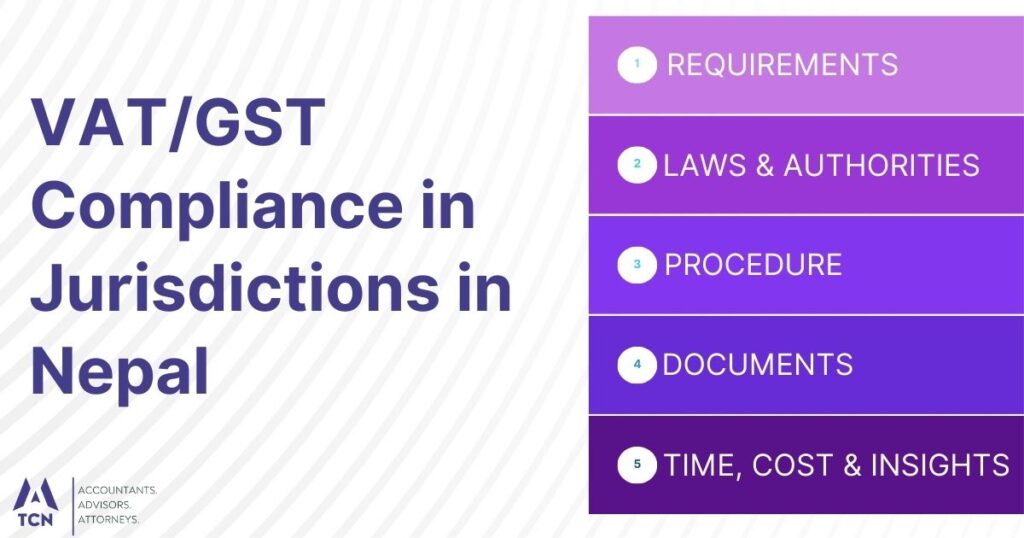
Nepal operates a Value Added Tax (VAT) system, which is similar to the Goods and Services Tax (GST) used in many other countries. The VAT system in Nepal was introduced in 1997 through the Value Added Tax Act, 2052 (1996). It is a consumption-based tax levied on the value added at each stage of production […]
Permanent Establishment (PE) Rules in Nepal
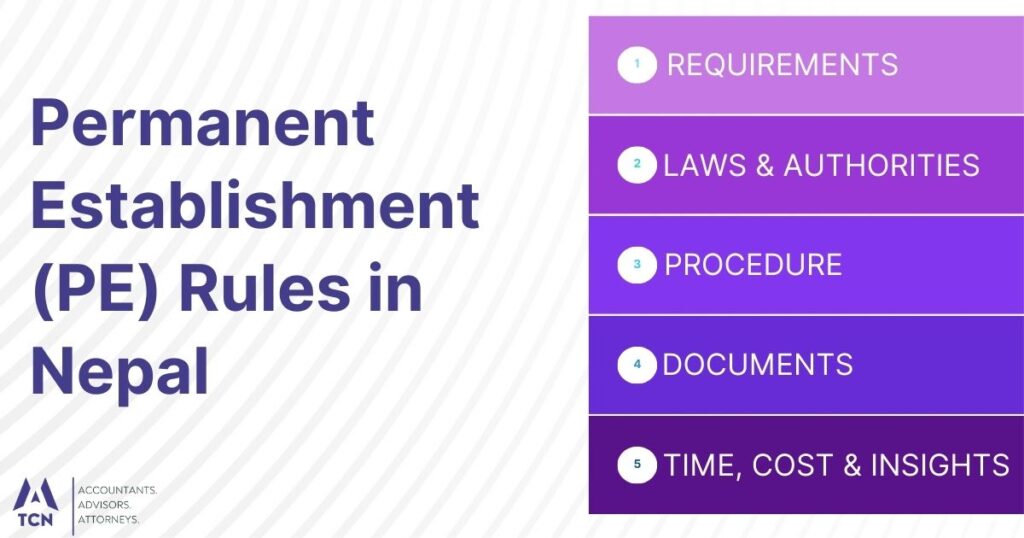
In Nepal, a Permanent Establishment (PE) is defined under Section 2(s) of the Income Tax Act, 2058 (2002). A PE is a fixed place of business through which the business of a non-resident person is wholly or partly carried on in Nepal. The following elements typically constitute a PE in Nepal: The concept of PE […]
Documents for Tax Exemptions and Refunds in Nepal
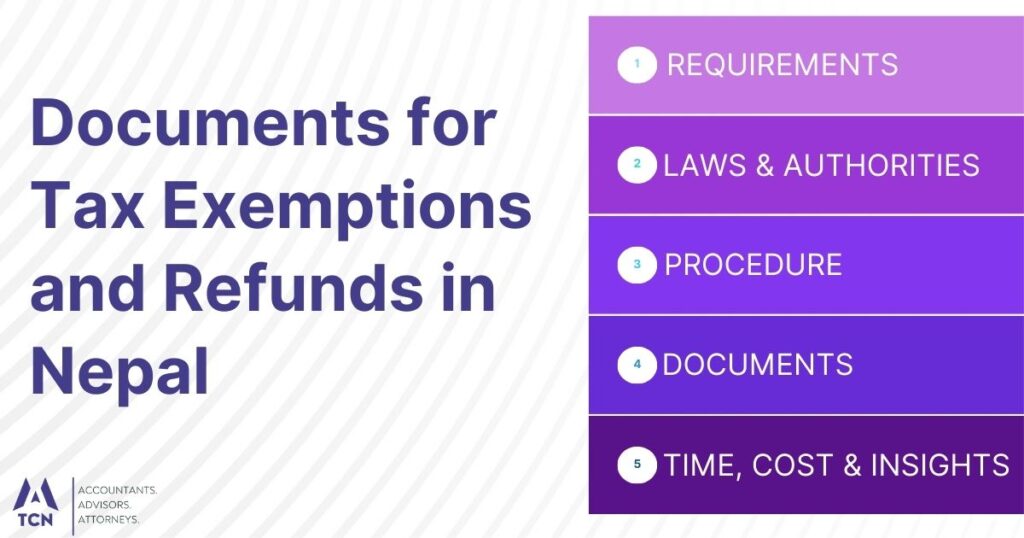
Nepal offers various tax exemptions to individuals, businesses, and organizations. These exemptions aim to promote economic growth, encourage investment, and support specific sectors or activities. Some of the key tax exemptions available in Nepal include: Applying for Tax Exemptions in Nepal To apply for a tax exemption in Nepal, follow these steps: Documents Required for […]
Compliance with Anti-Money Laundering (AML) Tax Reporting in Nepal
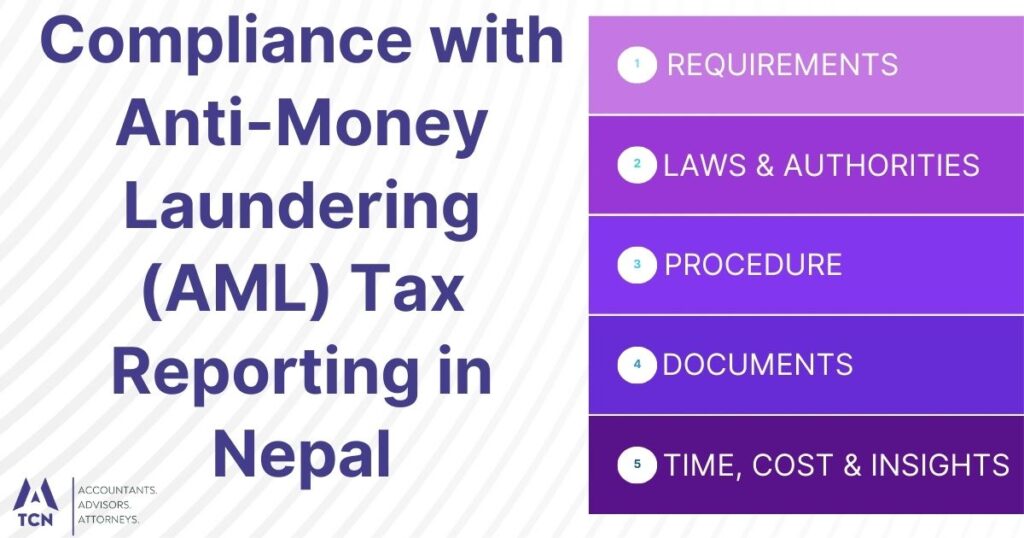
Nepal has established comprehensive Anti-Money Laundering (AML) tax reporting requirements to combat financial crimes and ensure transparency in financial transactions. These requirements are primarily governed by the Asset (Money) Laundering Prevention Act, 2064 (2008) and its subsequent amendments. The key AML tax reporting requirements in Nepal include: Who is required to comply with AML tax […]
Taxation of Foreign Employees in Nepal
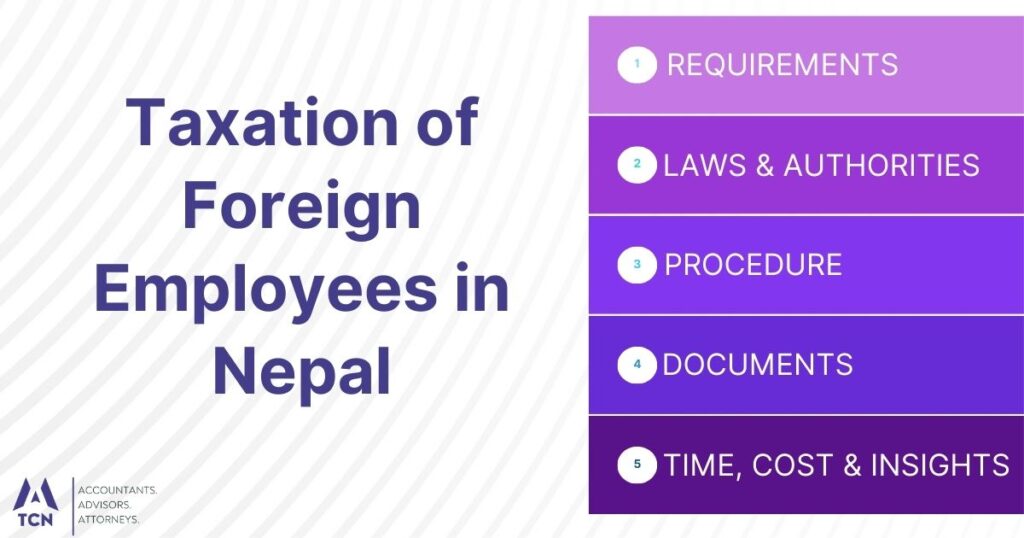
Foreign employees working in Nepal are subject to various tax obligations under the Income Tax Act, 2058 (2002). These obligations include: Foreign employees must comply with these obligations to avoid penalties and legal issues. Determination of Tax Residency in Nepal Tax residency in Nepal is determined based on the following criteria: Non-residents are taxed only […]
Property Tax and Leasehold Tax Obligations in Nepal

Property tax in Nepal is a local government levy imposed on real estate owners based on the assessed value of their property. This tax is a primary source of revenue for municipalities and rural municipalities to fund local development projects and public services. In Nepal, property tax is governed by the Local Government Operation Act, […]
Transfer Pricing Rules in Nepal
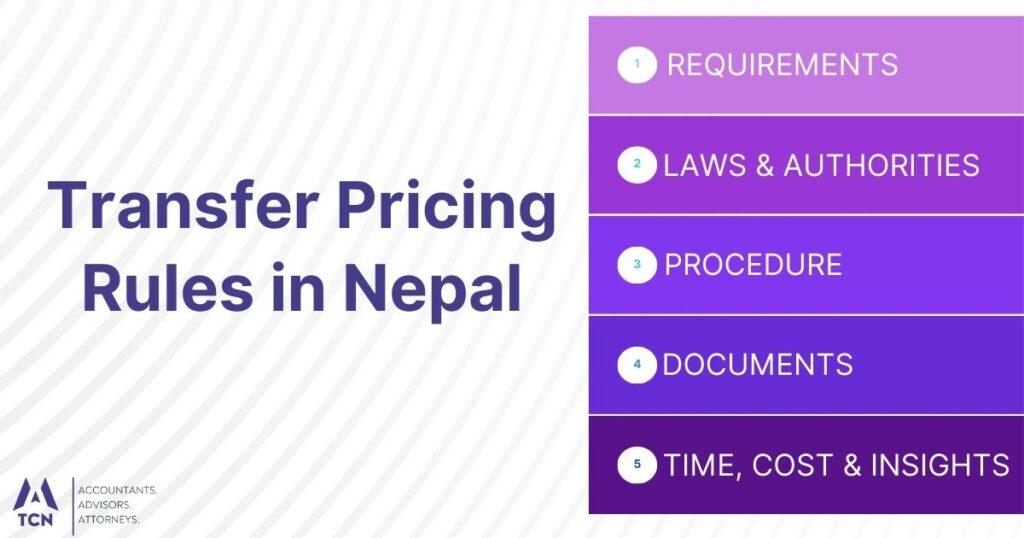
Transfer Pricing rules in Nepal are regulations designed to ensure that transactions between related parties are conducted at arm’s length prices. These rules are primarily governed by Section 33 of the Income Tax Act, 2058 (2002) and the Transfer Pricing Guidelines issued by the Inland Revenue Department (IRD) of Nepal. The primary objective of these […]
Dividend Taxation in Nepal
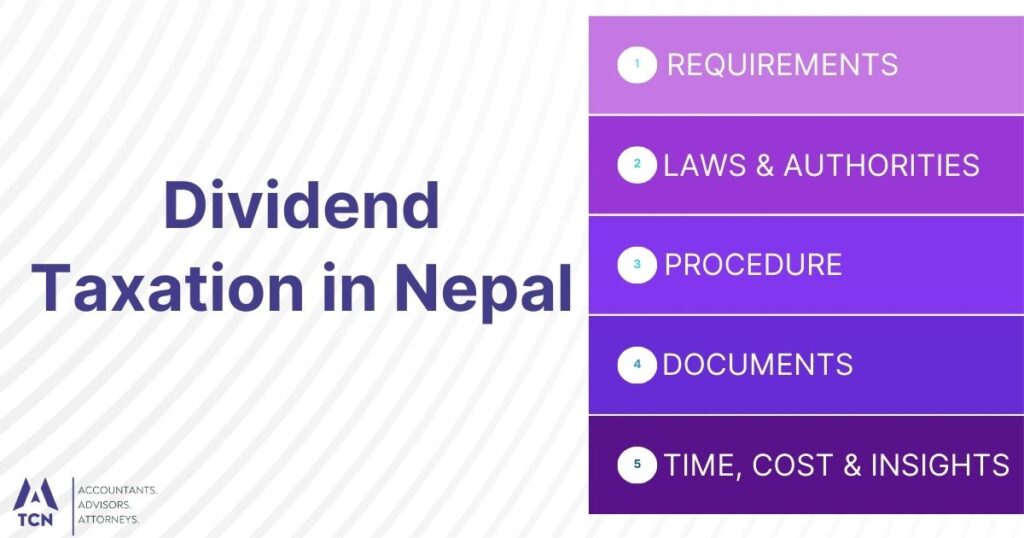
According to Nepali tax law, dividends are defined as distributions of profits by a company to its shareholders. The Income Tax Act 2058 (2002) of Nepal specifically addresses dividend income in Section 88. Dividends are considered a form of investment income and are subject to taxation under Nepali law. Key points regarding dividends in Nepali […]

